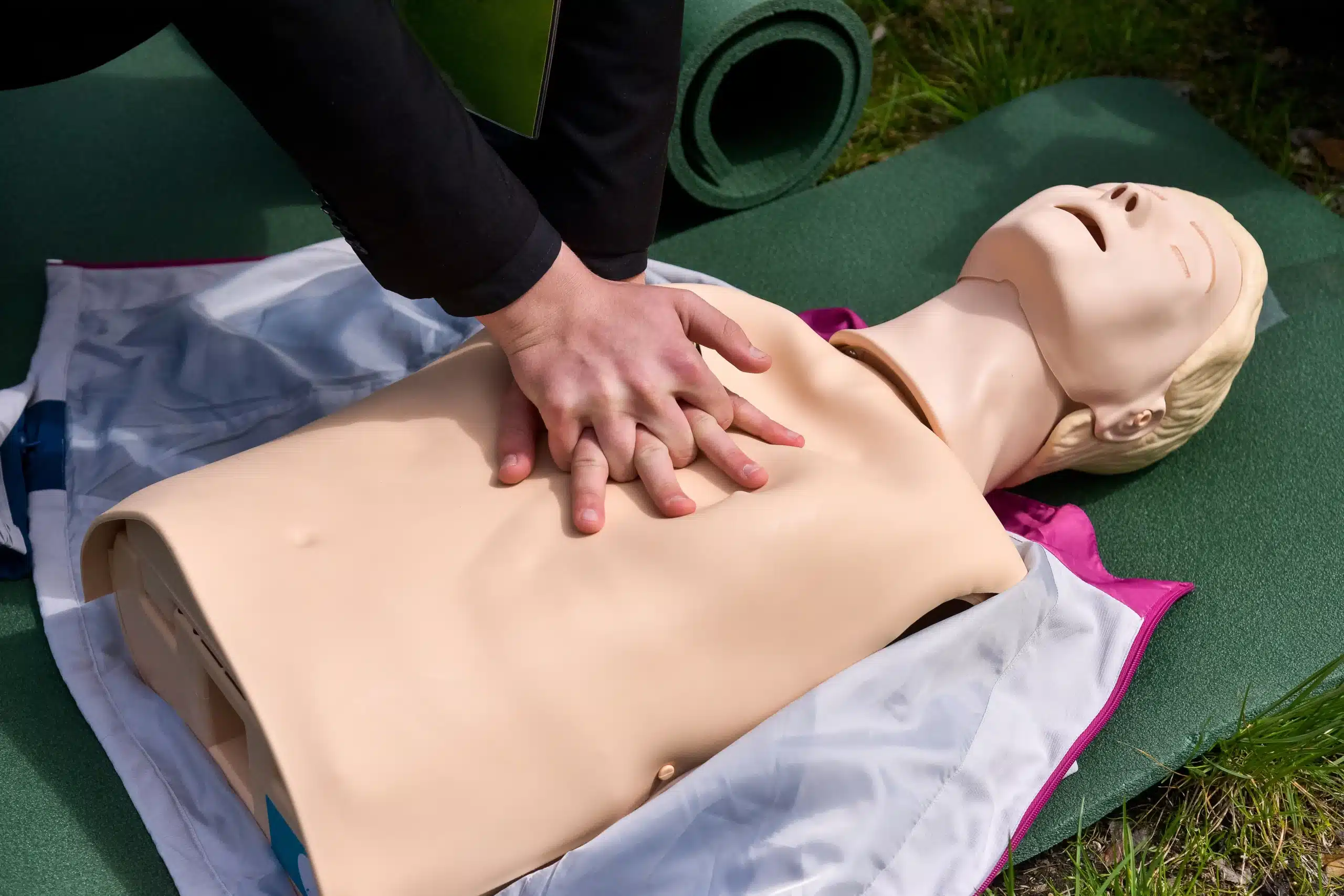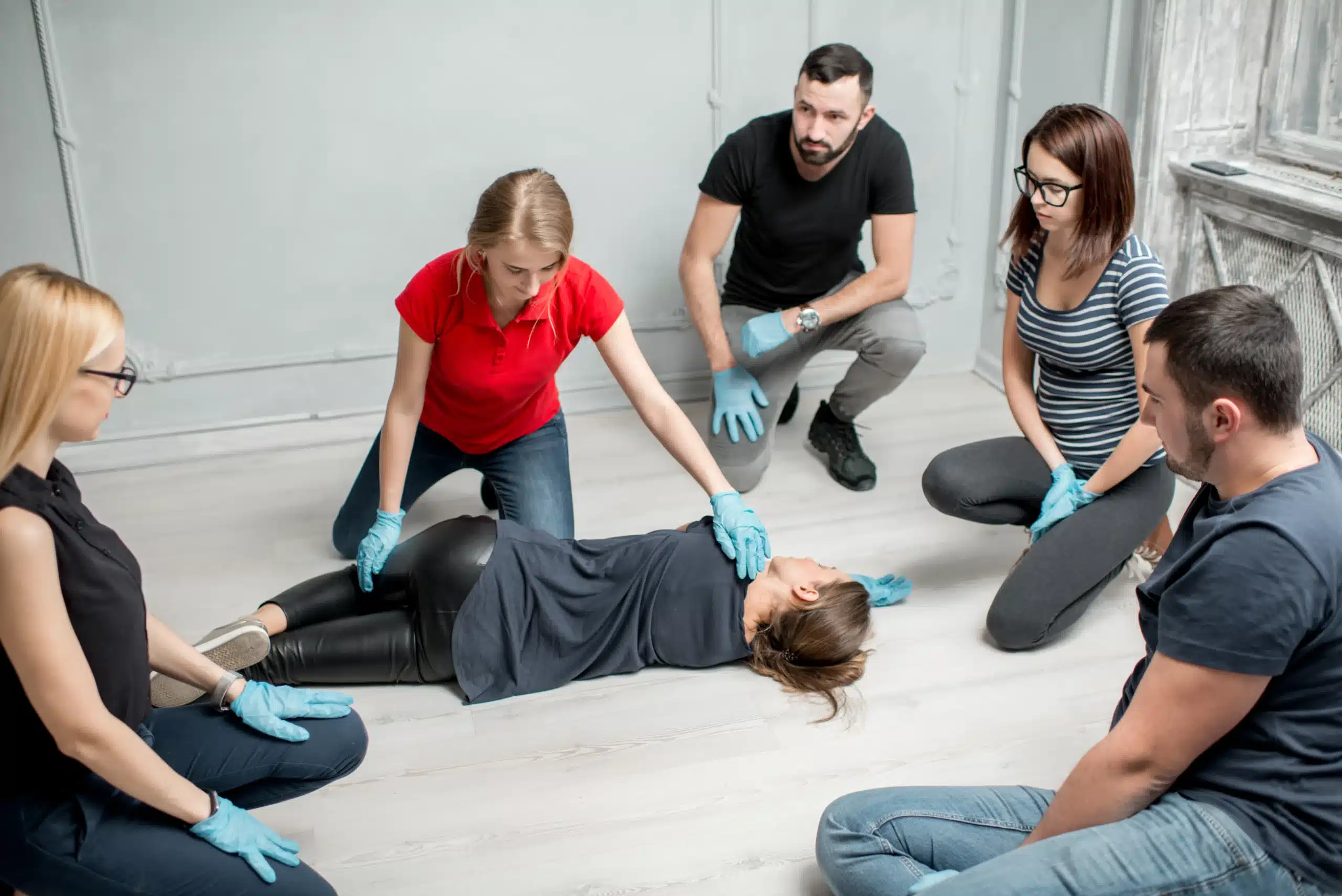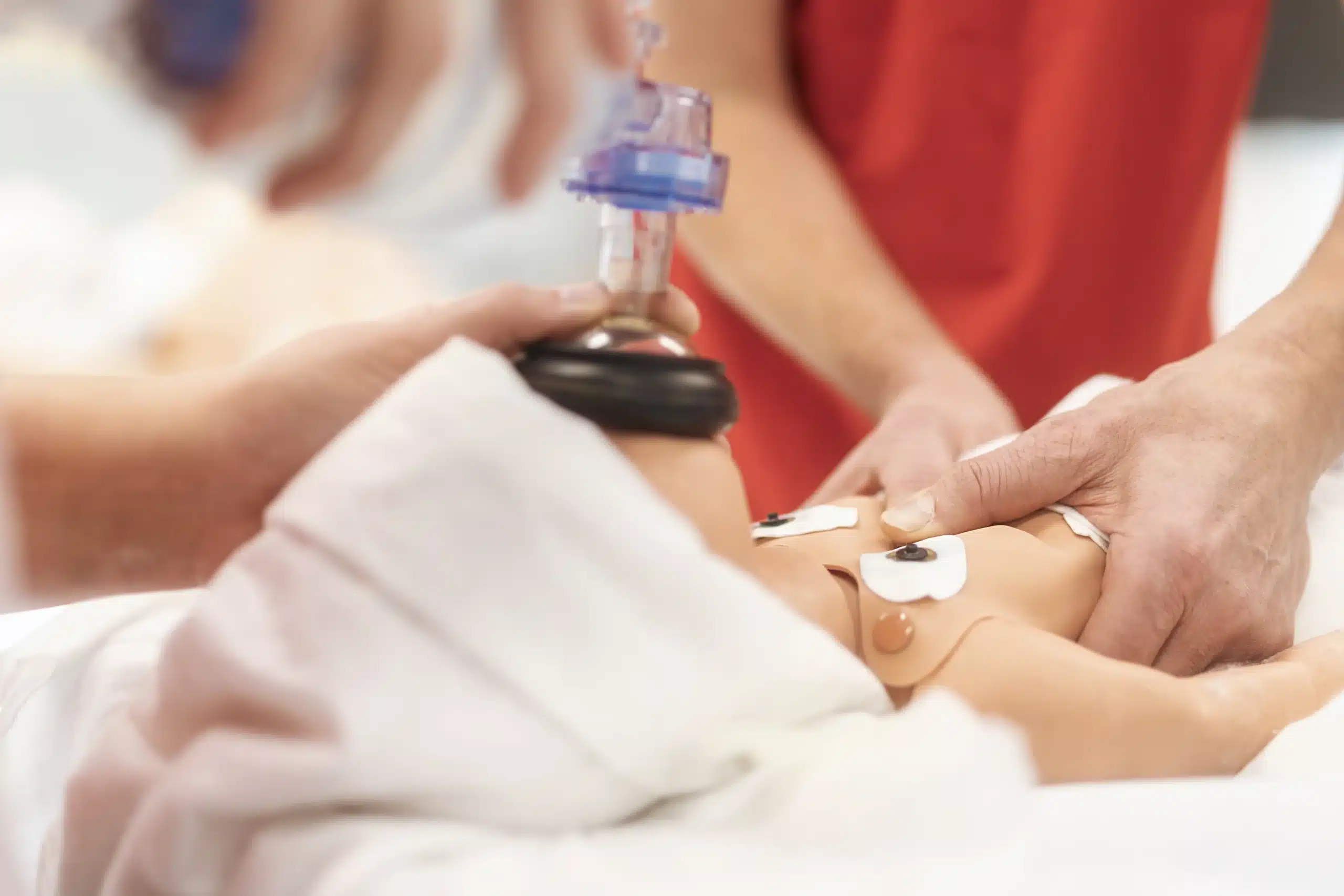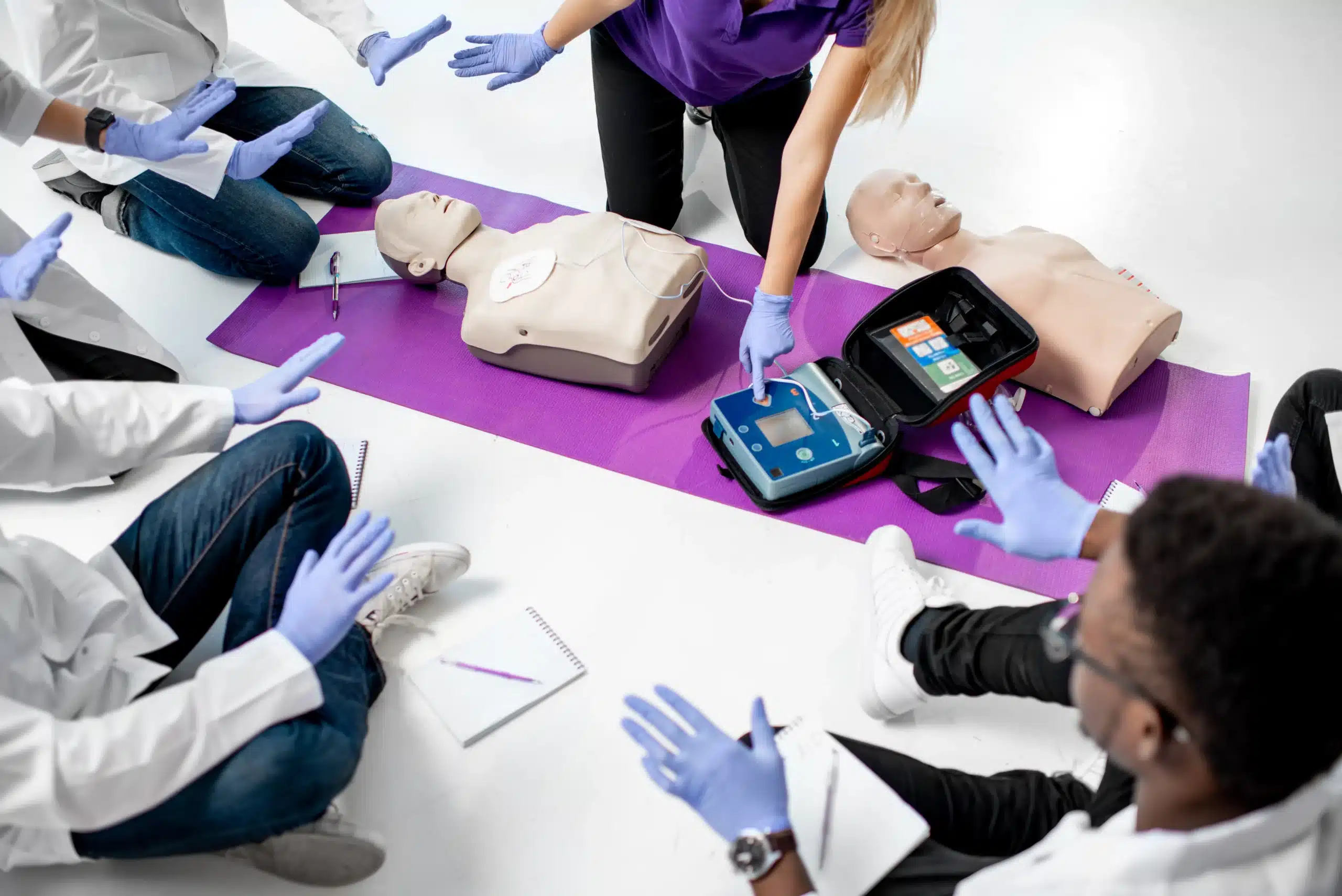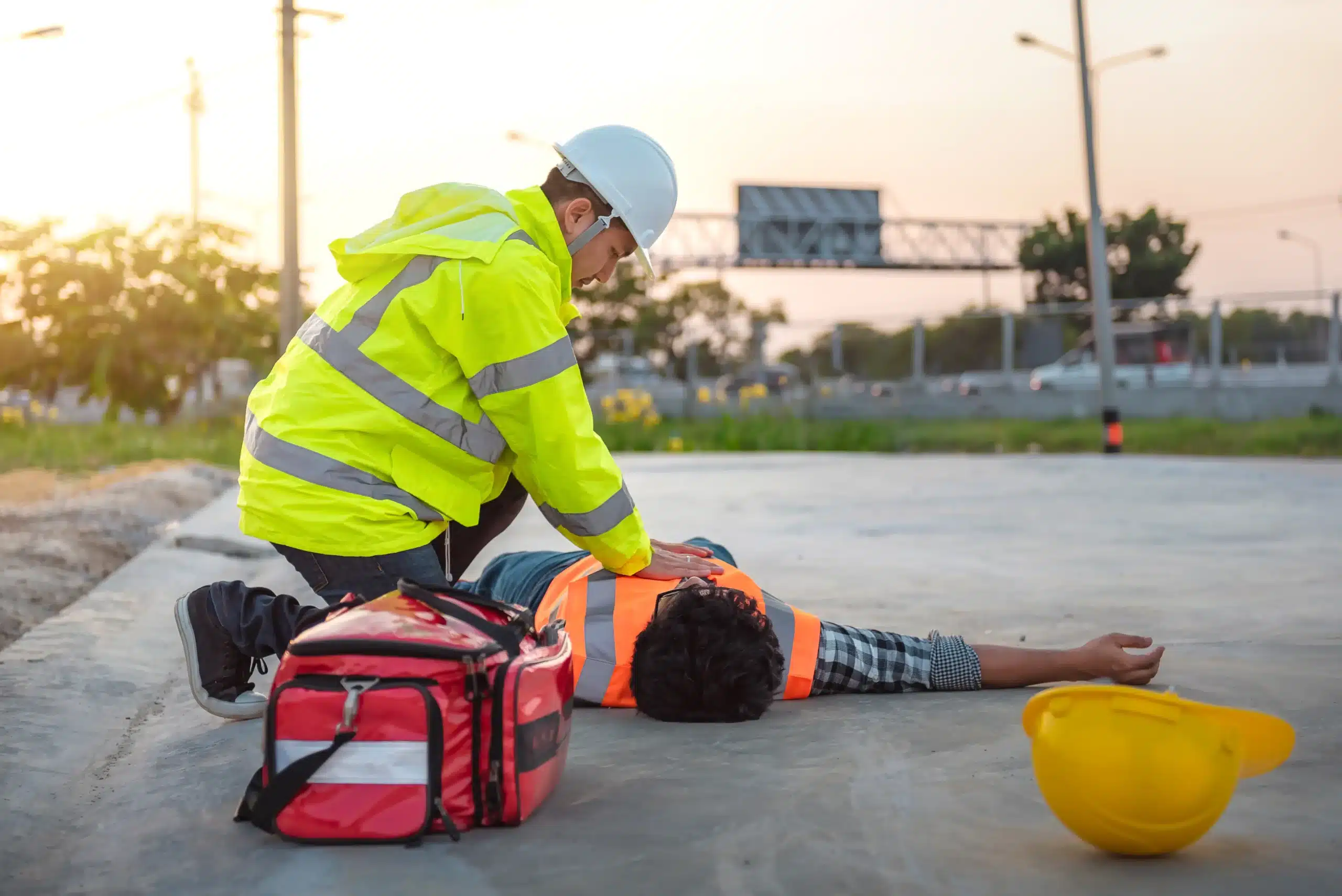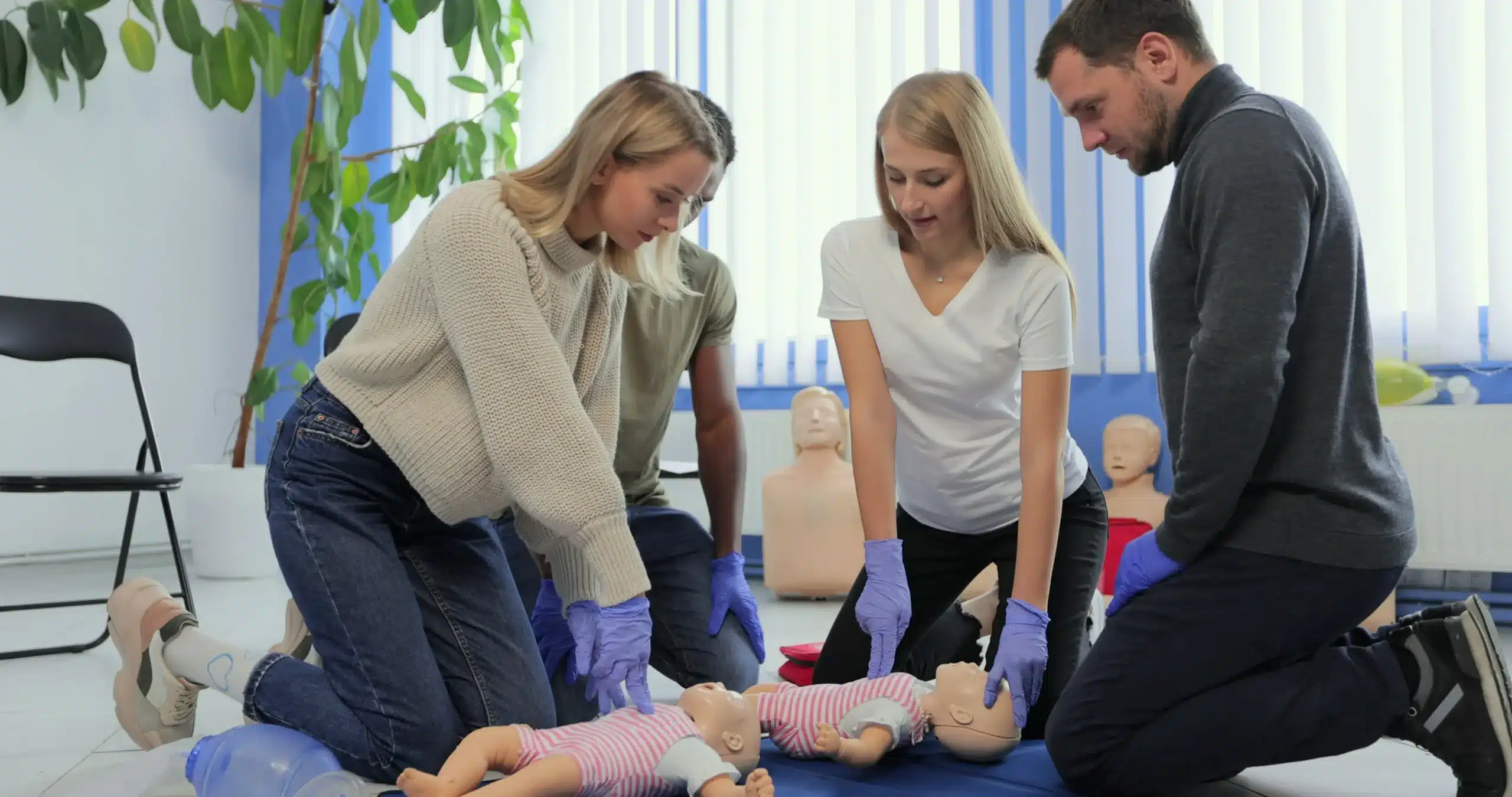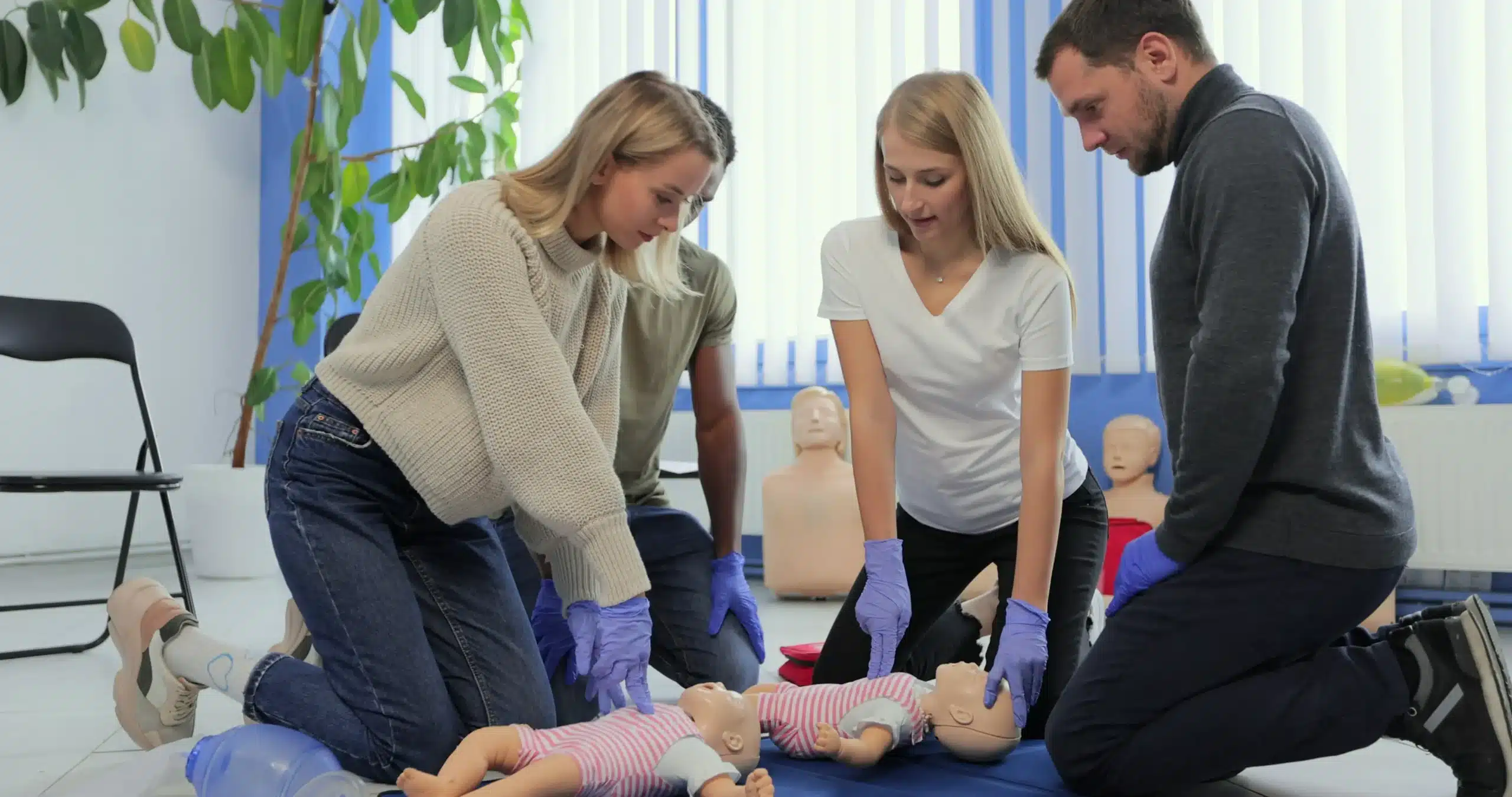Your BLS certification is more than just a piece of paper—it’s a testament to your ability to respond effectively in critical situations. But like any important skill, BLS requires regular refreshing. If you’re in Alameda and your BLS certification is nearing its expiration date, this guide is for you. We’ll break down everything you need to know about BLS renewal in Alameda, from understanding the process to finding affordable courses and staying up-to-date with the latest American Heart Association guidelines. We’ll also debunk some common myths about BLS renewal and offer practical tips for maintaining your skills long after you’ve renewed.
Key Takeaways
- Stay current with your BLS certification: Renewing your BLS certification every two years ensures you have the most up-to-date skills and knowledge to handle emergencies effectively. Look for AHA-certified courses that fit your schedule and learning style.
- Choose a reputable training provider: Select a provider like Safety Training Seminars, known for its low prices, group discounts, and commitment to quality instruction. Ask about course formats, instructor qualifications, and what’s included in the cost.
- Maintain your skills after renewal: Regularly practice your BLS skills, stay informed about updates to AHA guidelines, and consider additional certifications like ACLS, PALS, or NRP to enhance your preparedness and career prospects.
What is BLS Renewal in Alameda?
What is BLS & Why Renew?
Basic Life Support (BLS) certification shows you’ve completed training and gained the skills to respond to emergencies. Think of it as your official recognition for knowing how to handle crucial situations. But like many certifications, BLS doesn’t last forever. It expires every two years to ensure your skills and knowledge align with the latest medical practices. This is why BLS renewal is so important. Renewing your BLS certification means refreshing your training and staying up-to-date, so you can continue to provide effective care when it matters most. You’ll want to find a course that follows the most recent guidelines, such as those from the American Heart Association.
Why is BLS Important?
BLS training gives healthcare professionals the skills to assess a patient, begin immediate interventions, and provide vital support until more advanced medical help arrives. It’s all about being prepared and knowing what to do in those critical first moments. BLS training also teaches healthcare providers how to effectively follow established medical algorithms, ensuring the best possible outcome for their patients. Whether you’re a doctor, nurse, EMT, or another healthcare provider, having current BLS knowledge is essential for responding appropriately to life-threatening situations. It empowers you to confidently provide care and potentially save lives. You can learn more about the benefits of BLS training and how it prepares you for various emergency scenarios through resources like All Hearts CPR. The CNA Training Institute also offers valuable insights into the importance of BLS for healthcare professionals.
Where to Renew Your BLS in Alameda
Finding the right place to renew your BLS certification in Alameda is key to a smooth and efficient process. Here are a few options to explore:
Safety Training Seminars
Safety Training Seminars offers a convenient and affordable option for BLS renewal in Alameda. They are an official American Heart Association Training Center, ensuring your training meets industry standards. Check their website for their BLS renewal course information and details on their low price guarantee. They also offer other certifications like ACLS and NRP, and discounts for group classes.
Local Hospitals & Medical Centers
Hospitals and medical centers in Alameda often offer BLS renewal courses. Check with hospitals like Alameda Hospital or Highland Hospital to see if they have any upcoming courses. These courses are often a good fit for healthcare professionals, providing training relevant to their work environment.
Community Colleges
Community colleges in the Alameda area, such as the College of Alameda or Laney College, may offer BLS renewal courses through their continuing education programs. These courses can be a cost-effective option and often accommodate flexible schedules. Check their websites or course catalogs for more information.
How BLS Renewal Works
Renewing your Basic Life Support (BLS) certification is straightforward. This section breaks down the process, from course structure to receiving your updated certification card.
Course Structure & Duration
BLS renewal courses are designed to refresh your essential life-saving skills and knowledge efficiently. They cover core concepts like high-quality CPR for adults, children, and infants, the AHA Chain of Survival, and effective ventilation techniques. The BLS renewal course typically takes about three hours to complete, including skills practice and testing. Your BLS provider card is valid for two years, and the expiration date is printed directly on the card, making it easy to track your renewal needs.
Online Learning
Many providers offer the flexibility of online learning for BLS renewal. This allows you to review the course material at your own pace and convenience, from anywhere with internet access. Online renewal courses often use interactive elements and videos to make learning more engaging. However, BLS certification requires hands-on skills testing, so even with online learning, you’ll still demonstrate your proficiency in person.
Skills Testing
Skills testing is a crucial part of BLS renewal. You’ll perform CPR and other life-saving techniques in front of a certified instructor to demonstrate your competency. This practical assessment covers key skills such as chest compressions, rescue breaths, and AED use. Providers like Safety Training Seminars offer convenient in-person skills testing sessions to complete your renewal.
Getting Your Certificate
After successfully completing the online portion and the skills test, you’ll receive your updated American Heart Association (AHA) BLS certification card. This card is valid for two years and verifies your current BLS qualifications. At Safety Training Seminars, we provide your official AHA certification card immediately after the course, so you can maintain your credentials without delay.
BLS Renewal Costs & Discounts in Alameda
Typical Prices & What’s Included
In Alameda, American Heart Association (AHA) BLS CPR renewal typically costs around $120. This usually covers the online portion of the course, the in-person skills test, and your official AHA BLS certification card. Understanding what’s included upfront helps you compare training providers and make informed decisions.
Discounts & Packages
Many training centers offer discounts and packages to make BLS renewal more affordable. Look for discounts for groups, students, or healthcare professionals. Bundling BLS renewal with other certifications, like ACLS or PALS, might also save you money. Safety Training Seminars offers various discounts, including group rates, making them a smart choice for budget-conscious individuals.
Safety Training Seminars’ Low Price Guarantee
Safety Training Seminars provides high-quality, affordable BLS training in Alameda. They offer a range of AHA certifications, including BLS, ACLS, and NRP. Their low price guarantee ensures you receive excellent value. If you find a lower price for the same course, they’ll match it. This commitment to affordability makes them a great option for BLS renewal in Alameda.
How Often Should You Renew Your BLS?
Two-Year Certification Validity
BLS certification proves you’ve completed your basic life support training and have the skills to respond to an emergency. It’s important to remember that BLS certification is typically valid for two years. This ensures your skills and knowledge remain aligned with evolving medical standards. Think of it like a driver’s license—it needs to be renewed to confirm you’re still proficient. Staying current with the latest guidelines and techniques could make all the difference in a critical situation. For more information, check out our BLS renewal courses.
Why Renew On Time?
Renewing your Basic Life Support (BLS) certification on time is crucial for maintaining your lifesaving skills. It confirms you’re trained in the most recent standards and prepared to respond effectively in emergencies. A lapse in certification could mean you’re not equipped with the latest knowledge and techniques, potentially impacting your ability to provide the best possible care. The American Heart Association offers resources on BLS renewal and recertification. At Safety Training Seminars, we offer convenient BLS renewal courses to help you stay up-to-date.
Track Your Expiration Date
Your BLS certification card clearly displays your expiration date. Make a note of this date and set reminders to avoid letting your certification expire. Prioritizing timely renewal ensures you’re always prepared to provide high-quality care. If you’re unsure of your expiration date or need to renew, visit our website for BLS renewal information and course schedules. We offer courses in Oakland and over 60 other cities, making it easy to find a class that fits your schedule. Explore our low price guarantee and group discounts to make renewing your BLS certification even more convenient.
Benefits of BLS Renewal
Renewing your BLS certification isn’t just about checking a box; it’s about maintaining vital skills and ensuring you’re prepared for emergencies. Whether you’re a healthcare professional or someone who wants to be ready to help in a crisis, BLS renewal offers significant advantages.
Career Advantages
In the healthcare field, BLS certification is often a job requirement. Regular BLS renewal demonstrates your commitment to providing high-quality patient care and staying current with the latest American Heart Association guidelines. It keeps your skills sharp, increasing your value to employers and potentially opening doors to new opportunities. Maintaining a current BLS certification is essential for career advancement and demonstrates professionalism for healthcare providers like nurses, doctors, and paramedics. It shows you take your role in providing critical care seriously.
Personal Preparedness
BLS renewal empowers you to respond effectively in emergencies, even outside of a professional setting. Knowing you have the skills to perform CPR or assist someone experiencing a medical crisis provides peace of mind. It allows you to confidently handle situations that require immediate action, whether at home, in public, or at work. This preparedness can make a real difference in the outcome of an emergency. BLS training equips you with the knowledge and ability to assess a situation, deliver life-saving interventions, and provide support until professional help arrives.
Life-Saving Confidence
Regular BLS renewal builds confidence and reduces hesitation in critical moments. When faced with a real-life emergency, knowing you’re up-to-date on the latest techniques and procedures can be invaluable. This confidence allows you to act quickly and decisively, potentially saving a life. It ensures you’re not just equipped with the knowledge but also the assurance to apply it effectively under pressure. Refresher courses reinforce essential algorithms and procedures, allowing you to provide the best possible care during a medical crisis.
Choose the Right BLS Renewal Course
Renewing your Basic Life Support (BLS) certification is essential for healthcare professionals and anyone who needs to respond to medical emergencies. Choosing the right renewal course can significantly impact your preparedness and confidence. This section will guide you through key factors to consider, important questions to ask, and how to compare available courses.
Factors to Consider
When selecting a BLS renewal course, remember that BLS certification equips you with the skills to respond effectively in emergencies. Your training should cover the most current guidelines, as these can change. Staying current on updates is crucial for success in your renewal course and real-world scenarios. A good BLS renewal course will refresh your existing knowledge and introduce you to any new procedures or protocols. Consider what will best help you retain this information and apply it under pressure.
Questions to Ask
Before committing to a BLS renewal course, ask a few key questions. First, confirm that the course is taught by certified American Heart Association (AHA) instructors. This ensures you receive accurate and current training. Next, consider the course format. Do you prefer in-person, hands-on training, or would a blended learning approach with online components work better for your schedule? Think about your learning style and what environment helps you absorb information most effectively. Finally, inquire about the course length and content. A typical BLS renewal course takes about three hours, including skills practice and testing. Make sure the course fits your available time.
Compare Courses
Once you’ve considered these factors and asked the right questions, compare courses. Look at providers like Safety Training Seminars, which offers competitive prices for CPR and BLS training. Check if they offer group discounts if you’re renewing with colleagues. Compare not only the price but also the course content, format, and instructor qualifications. Choosing a reputable provider like Safety Training Seminars ensures you receive high-quality training that meets the AHA standards. Contact different training centers and ask for more details before making your decision. The right BLS renewal course will give you the confidence and skills to provide effective care in critical situations.
Prepare for Your BLS Renewal Course
Getting ready for your BLS renewal doesn’t have to be stressful. With a little prep work, you can walk into your course feeling confident and ready to refresh your life-saving skills. Here’s how to make your renewal process smooth and successful:
Review AHA Guidelines
Staying current with the latest American Heart Association (AHA) guidelines is key for BLS renewal. These guidelines can be updated, so reviewing them beforehand will help you breeze through the recertification process. Check the AHA website for the most recent guidelines and any updates since your last certification. Knowing the material will make the course a refresher instead of a scramble to catch up.
Practice Your Skills
Hands-on skills are the heart of BLS. Don’t let your skills get rusty! Regular practice is essential for a smooth renewal exam. Review key procedures like chest compressions, rescue breaths, and using an AED. Even practicing on a pillow can help keep those skills sharp. Remember, the goal is to be ready to respond effectively in a real-life emergency. For in-person training, consider the courses offered by Safety Training Seminars.
Use Online Resources & Study Groups
Take advantage of online resources and study groups to reinforce your knowledge. Many providers offer online modules, practice tests, and other helpful materials. Connecting with other students can also be a great way to review the material and ask questions. If you’re taking an online BLS recertification course, pay close attention to any specific requirements. Completing modules in a particular order or passing a quiz before moving on can make a big difference in your overall preparedness. Consider joining a study group to connect with other students.
BLS Renewal Myths
Let’s clear up some common misconceptions about BLS renewal. These myths can create confusion and sometimes lead to people neglecting this important training.
Certification Longevity
One myth is that BLS certification lasts forever. In reality, your BLS certification expires every two years. This is because medical standards and best practices evolve. Renewing your certification ensures you’re up-to-date with the latest life-saving techniques outlined by the American Heart Association. Staying current is crucial for providing effective care. As Steve Cheney points out in his article on BLS certification, prioritizing renewal keeps your skills sharp and aligned with current guidelines.
Hands-On Practice Importance
Some people think they can breeze through BLS renewal without much hands-on practice. This is a mistake. The hands-on portion of the renewal course is essential for refining your skills and building muscle memory, so you can respond effectively in a real emergency. SBH Inter highlights the importance of this practice for passing the renewal exam and being prepared to act confidently when needed.
Last-Minute Renewals
Don’t wait until the last minute to renew your BLS certification. Scheduling in advance is key, especially if your recertification requires an in-person skills check. Last-minute scheduling can cause delays or even missed deadlines, as explained in this Science Times article. Plan and register with plenty of time to spare to avoid stress and ensure your certification remains valid.
Maintain Your BLS Skills After Renewal
Renewing your BLS certification is a crucial step, but maintaining those skills throughout your two-year certification period is equally important. This proactive approach not only ensures you’re prepared for any emergency but also makes your next renewal much smoother. Here’s how to stay sharp:
Practice Regularly
Regular practice is key to retaining the BLS skills you’ve learned. Think of it like any other skill—consistent use keeps it fresh in your mind. Set aside time to review core techniques like chest compressions and rescue breaths. Practicing with a friend or family member can be helpful, allowing you to simulate real-world scenarios. This hands-on practice is essential for smoothly passing the renewal exam, as forgetting the practical application is a common mistake. Consider refreshing your knowledge with our BLS renewal course at Safety Training Seminars, where you can practice scenarios that mimic actual emergencies.
Stay Informed
The medical field is constantly evolving, and BLS guidelines are no exception. Staying updated on the latest American Heart Association guidelines is crucial for providing effective care. Changes to these guidelines can impact your recertification test, so make sure you’re aware of any updates. The reason BLS certification expires is to ensure practitioners regularly refresh their skills and knowledge, keeping current with advancements in emergency medical care. Subscribing to relevant medical journals or following reputable online resources can help you stay informed.
Further Training & Specialization
BLS is a foundational skill, but there are many opportunities to expand your knowledge and specialize in areas that interest you. Consider pursuing advanced certifications like ACLS (Advanced Cardiovascular Life Support), PALS (Pediatric Advanced Life Support), or NRP (Neonatal Resuscitation Program). These specializations can enhance your career, especially if you’re a healthcare professional like a nurse, doctor, or paramedic, for whom BLS certification is often a requirement. Regular training and recertification demonstrate your commitment to providing high-quality patient care. Safety Training Seminars offers a range of courses to help you advance your skills and stay at the forefront of emergency medical care.
Related Articles
- BLS CPR Classes in Oakland, CA – Oakland CPR Classes
- BLS ACLS PALS Courses in Oakland: Your Complete Guide – Oakland CPR Classes
- Online BLS Classes in Oakland: Your Complete Guide – Oakland CPR Classes
- BLS, ACLS, PALS, CPR & First-aid Classes in Oakland, CA
- CPR Certification in Oakland: Your Guide – Oakland CPR Classes
Frequently Asked Questions
How long is my BLS certification valid? BLS certification is valid for two years from the date of issue. It’s important to renew before it expires to maintain your credentials and stay up-to-date with the latest guidelines.
What if I let my BLS certification lapse? If your BLS certification expires, you’ll need to retake the full course, not just a renewal course. It’s always best to renew on time to avoid extra costs and ensure you’re always ready to respond to emergencies.
What’s the difference between BLS renewal and recertification? BLS renewal is for those whose certification is still current or has recently expired. Recertification is typically for certifications that have been expired for an extended period. Check with your certifying body or training center to determine which course you need.
Is online BLS renewal an option? Yes, many providers offer online or blended learning options for the cognitive portion of BLS renewal. However, you’ll still need to complete an in-person skills test with a certified instructor.
How can I find BLS renewal courses near me? Several resources can help you find local BLS renewal courses. Check with hospitals, community colleges, and training centers like Safety Training Seminars. Online searches can also help you locate providers in your area.


